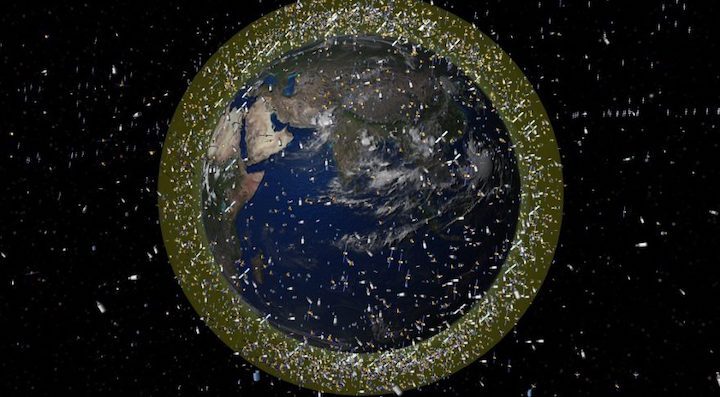7.01.2022

WASHINGTON — Vice Chief of Space Operations Gen. David Thompson in a video released Jan. 5 called on the private sector to help clean up space junk.
“We need your help,” said Thompson in a video posted by the Space Force’s technology arm known asSpaceWERX.
SpaceWERX is running a program called Orbital Prime that is soliciting proposals from private businesses and academic institutions on technologies that could be used to deal with the growing problem of space debris.
Proposals for the first phase of Orbital Prime are due Feb. 17.
“Our goal through Orbital Prime is to partner with innovative minds in industry, academia and research institutions to advance and apply state of the art technology and operating concepts in the areas of debris mitigation and removal,” said Thompson.
The long-term goal is to conduct an in-space demonstration of debris removal technologies less than three years from now. The project is being funded under the Small Business Technology Transfer (STTR) program. Companies have to team up with academic or nonprofit institutions. Larger companies can participate but as subcontractors to a small business.
Teams can win Phase 1 awards of $250,000 and Phase 2 awards of $1.5 million. If any are selected for an in-space demonstration, the government will fund a share of the cost.
Thompson said the Space Force wants to see these technologies succeed so it can buy debris-removal services from the private sector.
“Our vision in this partnership is to aggressively explore those capabilities today, in the hope that we and others can purchase them as a service in the future,” he said.
The growth of space debris is a mounting challenge for governments and the commercial space sector as these objects can collide with satellites or space stations inhabited by humans. The Space Force currently tracks more than 40,000 objects in space, only about 5,000 of which are active satellites. The approximately 35,000 debris objects tracked are about the size of a fist or larger, Thompson said. But according to conservative estimates, “there are at least 10 times as many smaller objects in orbit that we cannot reliably track. And yet those smaller bits of debris pose as much or greater risk to our satellites as the larger pieces.”
This congestion endangers the long term sustainability of the space domain, said Thompson. “It demands action and provides an opportunity for partnership in the search for innovative solutions to recycle, reuse or remove these objects.”
Quelle: SN
